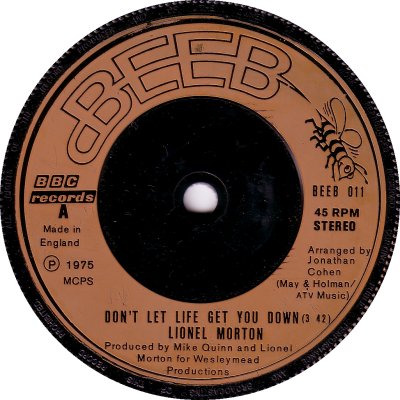
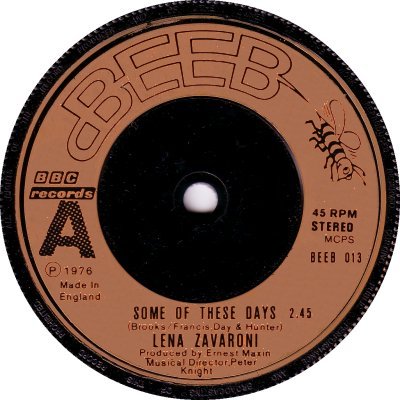
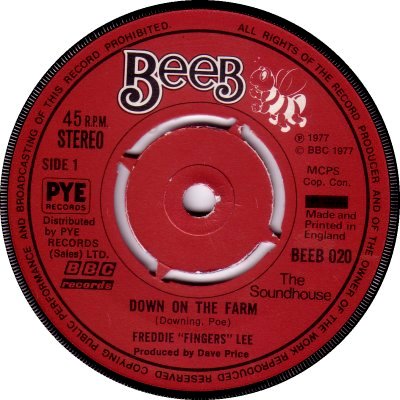

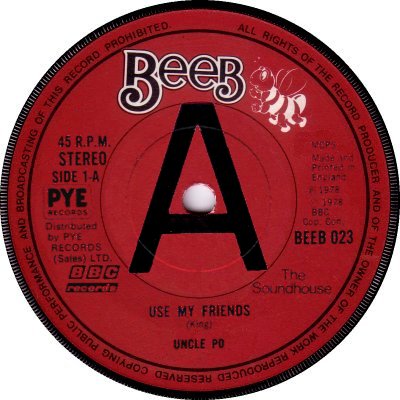
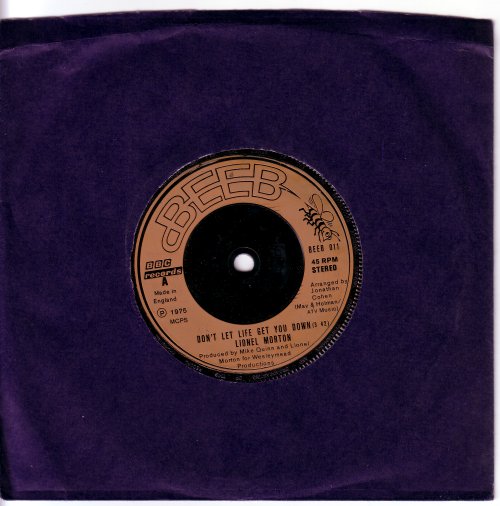
An offshoot of BBC Records. 'Music Week' of the 7th September 1974, reporting on the label's imminent launch, said that Beeb was intended to be a Pop-orientated label; a glance at its catalogue suggests that its output consisted of a mixture of originals, licensed material, music from BBC sessions, and themes from BBC programmes. Numbering was in a BEEB-000 series. BEEB-004, 'Rock Around The Rock' b/w 'Susanne And Me' by Buddy, achieved what I would think is the unique distinction of being a BBC record that was banned by the BBC. According to 'MW' (26th of April 1975) the ban was imposed not because of any moral concerns raised by the lyrics but because a BBC Records press release had said that the single would receive 'full support from Radio 1 and from local BBC stations'. The article quoted a representative of the BBC as saying that it was careful not to give its own records preference, and that in order to avoid misunderstanding the record would not be played on BBC radio programmes. Beeb had past and future hit-makers amongst its artists - Gene Vincent, Chris Farlowe and Lena Zavaroni were no strangers to the charts, and The Dooleys were to score frequently from 1977 to 1981 - but none of its releases ever troubled the Top 75. It issued twenty-seven singles before the end of the '70s, and added a final one in the autumn of 1981 before expiring.
At the time of Beeb's launch BBC's records were being pressed and distributed by Polydor / Phonodisc, which resulted in dull injection-moulded labels (1). For issues from BEEB-012 onwards the small black 'A' at the left grew in size (2). When BBC Records changed manufacturers and distributors in the autumn of 1976, moving to Pye, BEEB naturally went with it. In the process it gained rather more imaginative - if somewhat crowded - paper labels (3). Some singles can be found with both types of label, presumably as a result of re-pressings. Catalogue numbers were unaffected by the changeover. There were no dedicated company sleeves for Beeb singles; they used the same plain navy blue ones as their BBC siblings during the Polydor era (6), while during the Pye years they seem to have used plain white sleeves, if the few copies that I have seen in their original sleeves are any guide. There were no promos during the Polydor period, but they appeared after the move to Pye - at first they had a medium-sized central 'A' (4) which grew larger and thinner from around BEEB-023 (5) - that scan has been doctored to repair damage.
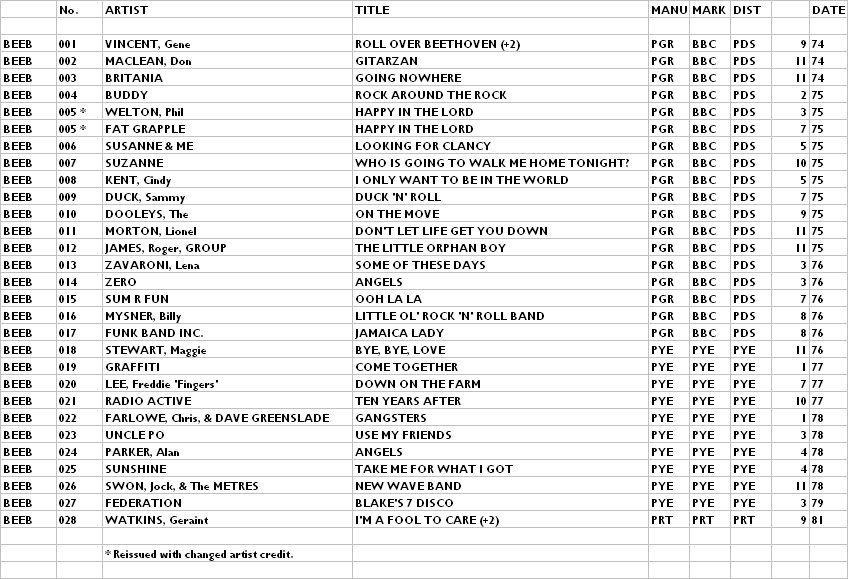


Copyright 2006 Robert Lyons.

